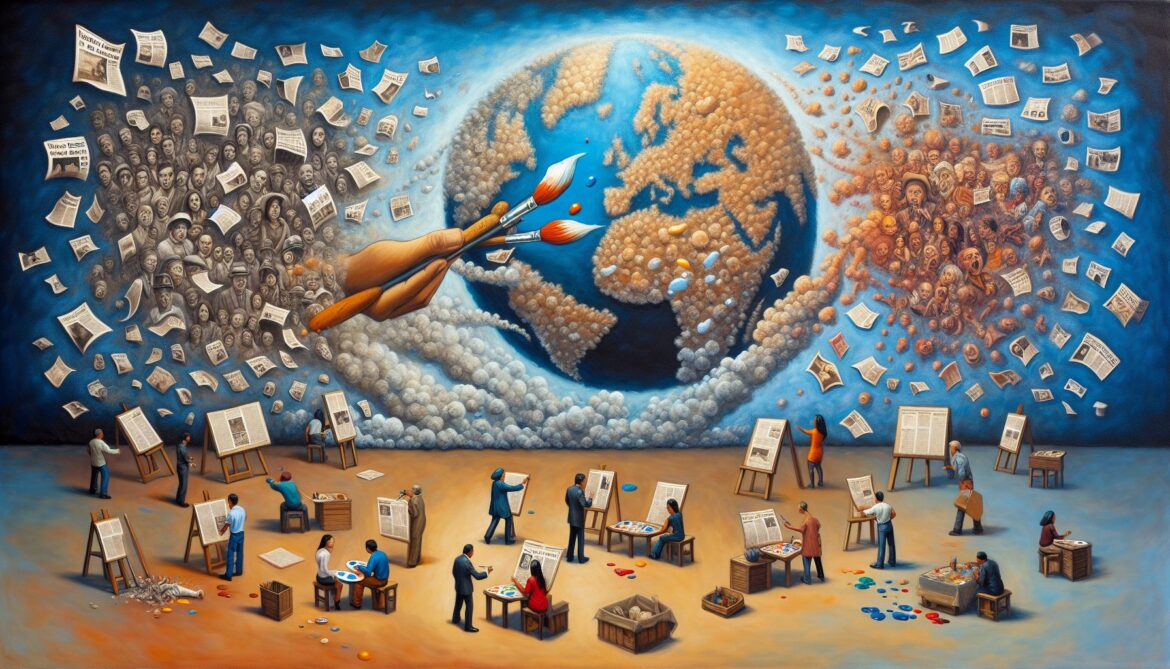
In our fast-paced, digital world, staying informed is no longer a prerogative but a necessity. The advent of real-time news and the pace at which information is disseminated can be overwhelming. However, it is this constant flux that keeps our world well-oiled and the wheels of change perpetually turning. This article aims to delve into the latest developments across the globe, the role of the media, and the challenges faced by journalists adhering to the principles of authenticity, balance, and credibility in the digital era.
 Today’s news platforms provide much more than a summary of global happenings; they serve as a dynamic forum for diverse perspectives and insights. Influential global events, such as pandemics, climate change incidences, technological advancements, geopolitical shifts, satellite and space explorations, and humanitarian crises, are shaping the world narrative. In the handling of such subjects, the power, responsibility, and impact of the media become profoundly evident.
Today’s news platforms provide much more than a summary of global happenings; they serve as a dynamic forum for diverse perspectives and insights. Influential global events, such as pandemics, climate change incidences, technological advancements, geopolitical shifts, satellite and space explorations, and humanitarian crises, are shaping the world narrative. In the handling of such subjects, the power, responsibility, and impact of the media become profoundly evident.
For instance, the media’s role during the ongoing pandemic has been multifaceted. Broadcasting vital information, fact-checking, promoting health advisories, debunking myths, and providing in-depth analysis are all part of its vast and significant repertoire. However, striking the right balance between the gravity of the situation and information-induced panic can be challenging.
Moreover, the rapid digitalization of societies is restructuring the media landscape. Consumers tailor their news feeds based on their interests, leading to echo chambers that may foster polarization. Besides, media outlets face the daunting task of confirming the veracity of countless pieces of information each day, in a world increasingly susceptible to fake news. These challenges underscore the importance of journalistic integrity, especially in the digital era where rapidity often overshadows reality.
Transitioning from traditional media formats to digital platforms is key for survival in the current media ecosystem. Journalistic content must adapt to changing consumer habits. Reporters are now not merely correspondents; they need to become storytellers, content creators, and influencers who can engage the audience on various levels.
In conclusion, the role of news in drawing the arch of global events cannot be understated. While digital media platforms offer speed, accessibility, and customization, they also pose formidable challenges. Information quality, source credibility, decision-making autonomy, and balance in perspectives are at the core of these difficulties. In the face of such ambiguities, journalistic integrity is paramount, underlining the need for truthful, balanced, and credible reporting more urgently than ever.
The future of media is evolving, with media organizations playing an increasingly crucial role in the public discourse around societal issues. Emerging technologies such as AI and AR can enhance storytelling capabilities, making the news more immersive and interactive. Media literacy also urgently needs to be boosted to counteract disinformation and fostering a healthier information environment. By embracing these changes and challenges, we can ensure a future of news that is more relevant, trustworthy, and impactful.



